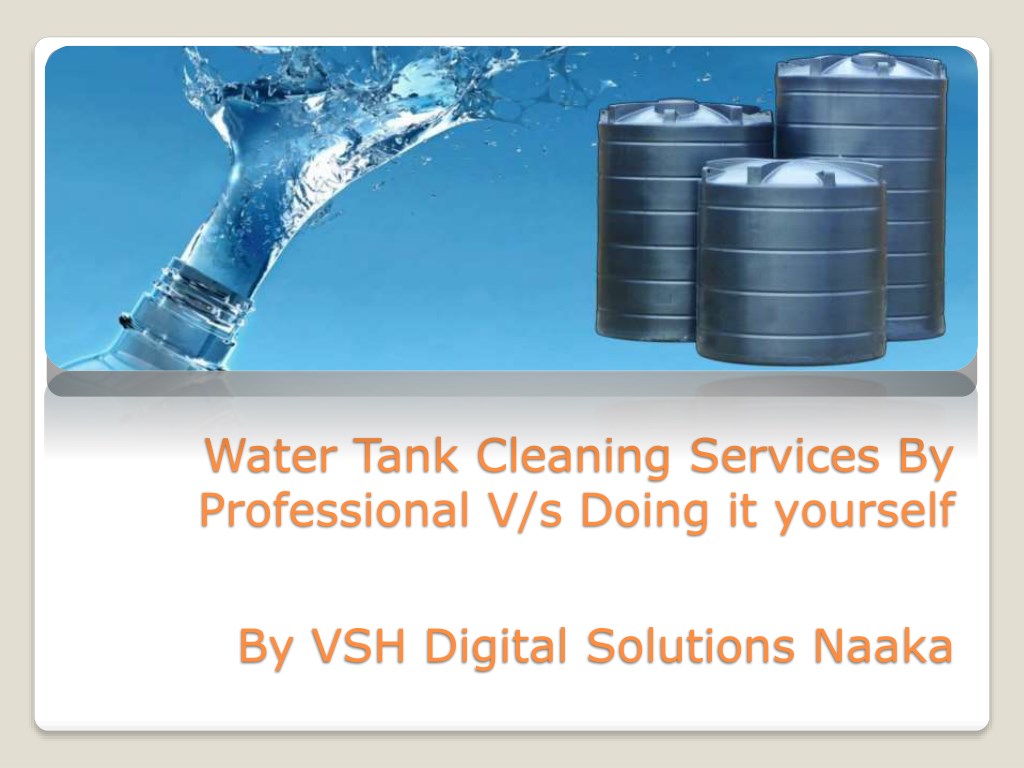Comparing Professional Water Tank Cleaning Services: What You Need to Know
Are you in need of professional water tank cleaning services but unsure where to start? Look no further! In this article, we will provide you with valuable information on comparing different professional water tank cleaning services. From understanding the importance of regular cleaning to examining the unique selling points of various service providers, we will guide you through everything you need to know to make an informed decision. So, let’s dive in and explore the world of professional water tank cleaning services together!
Understanding the Importance of Professional Water Tank Cleaning
Why is regular water tank cleaning crucial?
Regular water tank cleaning is crucial for the overall maintenance and longevity of your water tank system. Over time, sludge, sediments, bacteria, and other contaminants can accumulate in the tank, compromising the quality of the water stored within. By regularly cleaning your water tank, you can ensure that you have access to clean, safe, and healthy water for various purposes.
Health risks associated with unclean water tanks
Unclean water tanks pose several health risks to individuals who consume the water. The accumulation of bacteria, viruses, and other microorganisms can lead to waterborne diseases such as diarrhea, cholera, typhoid, and hepatitis. Moreover, the presence of sediments and pollutants in the water can cause skin irritation, allergies, and respiratory problems. These health risks can be avoided by regular professional water tank cleaning.
Benefits of professional water tank cleaning
Professional water tank cleaning offers numerous benefits compared to DIY cleaning methods. Firstly, professionals have the necessary expertise and equipment to thoroughly clean and disinfect the tank, ensuring the removal of all contaminants. They also follow strict safety protocols to protect themselves and the surrounding environment during the cleaning process. Additionally, professional cleaners can detect any potential issues with the tank, such as leaks or corrosion, and provide timely repairs or recommendations for proper maintenance.
The impact of neglected water tanks on water quality
Neglected water tanks can have a significant impact on water quality. As sediments and contaminants accumulate in the tank, they can mix with the stored water, leading to discoloration, foul odor, and an unpleasant taste. This not only affects the aesthetics of the water but also makes it unsuitable for various purposes such as drinking, cooking, and bathing. Moreover, the presence of pollutants in the water can also damage plumbing systems and appliances over time. Regular professional cleaning helps maintain the water quality and prolong the lifespan of your tank and related infrastructure.
Identifying Your Water Tank Cleaning Needs
Assessing the condition of your water tank
Before deciding on the cleaning method, it is essential to assess the condition of your water tank. Inspect the tank for any visible signs of contamination, such as algae growth, sediment buildup, or discoloration. Additionally, consider factors such as the age of the tank, the quality of water being supplied, and any previous cleaning or maintenance history. This assessment will help determine the level of cleaning required and whether professional cleaning is necessary.
Choosing between DIY vs. professional cleaning
While DIY cleaning methods are an option, they may not always be as effective as professional cleaning services. Cleaning a water tank requires specific knowledge, skills, and equipment that professionals possess. They have access to specialized tools such as high-pressure cleaners, sanitizing agents, and disinfection procedures that ensure a thorough and efficient cleaning process. Considering the potential health risks involved with improper cleaning, it is generally recommended to opt for professional services for the best results.
Understanding the frequency of water tank cleaning
The frequency of water tank cleaning depends on various factors such as the size of the tank, the quality of the water supply, and the level of usage. As a general guideline, it is advisable to have your water tank professionally cleaned at least once a year. However, in certain cases where the water source is heavily contaminated or there is increased usage, more frequent cleaning may be necessary. Consulting with a professional cleaner can help determine the ideal cleaning frequency based on your specific circumstances.
Recognizing signs that your tank might need cleaning
There are several signs that indicate your water tank might need cleaning. These include:
- Foul odor or taste in the water: If you notice a strange smell or taste in the water, it is a clear sign of contamination. This could be due to the presence of bacteria, algae, or other pollutants in the tank.
- Discolored or cloudy water: If the water coming out of your taps appears discolored or cloudy, it indicates the presence of sediments or impurities. This can be caused by a dirty water tank.
- Reduced water flow: If you experience a decrease in water pressure or noticeable clogging in plumbing fixtures, it could be due to sediment buildup in the tank.
- Algae or mold growth: If you observe green or black algae growth or mold inside your water tank, it is a strong indication that cleaning is required.
If you encounter any of these signs, it is important to consult a professional water tank cleaning service to assess and address the issue.
Market Overview of Professional Water Tank Cleaning Services
Major players in the water tank cleaning industry
The water tank cleaning industry comprises several major players offering professional services. These companies have established themselves in the market by providing reliable and efficient cleaning solutions to residential, commercial, and industrial clients. Some prominent players in the industry include [Insert company names here].
Emerging trends in water tank cleaning
The water tank cleaning industry is continuously evolving and adapting to emerging trends to provide better services to customers. One of the notable trends is the use of advanced technology in the cleaning process. Many professional cleaners now utilize robotic devices and remote-controlled vehicles to access and clean tanks in hard-to-reach areas. This ensures a more thorough and efficient cleaning process while minimizing human intervention.
Another emerging trend is the incorporation of eco-friendly practices in water tank cleaning. Many companies are now using biodegradable and non-toxic cleaning agents to minimize the environmental impact of the cleaning process. Additionally, some cleaners offer rainwater harvesting and recycling solutions as part of their services, promoting sustainable water management practices.
Geographical concentration of service providers
The concentration of water tank cleaning service providers can vary by region. In urban areas, where water tank systems are more prevalent, there is usually a higher concentration of cleaning companies. Urban centers with a large population, commercial establishments, and industries tend to have a greater demand for professional cleaning services. However, with the increasing awareness of the importance of water tank cleaning, service providers can also be found in rural areas to cater to the needs of smaller communities.
Comparing Techniques Used by Professional Water Tank Cleaners
Procedures for cleaning water tanks
Professional water tank cleaners employ various procedures to clean tanks effectively. The cleaning process typically involves the following steps:
- Drainage: The tank is emptied of all the water and sediment, ensuring it is completely empty before the cleaning process begins.
- Scrubbing and brushing: The interior walls and floor of the tank are scrubbed and brushed to remove any deposits and debris.
- High-pressure cleaning: High-pressure jets of water are used to flush out any remaining sediments and contaminants from all corners of the tank.
- Disinfection: After cleaning, the tank is treated with a disinfectant solution to eliminate any remaining bacteria, viruses, or other microorganisms.
- Rinsing: The tank is thoroughly rinsed with clean water to remove any traces of cleaning agents or disinfectants.
- Refilling: Once the tank is cleaned and disinfected, it is refilled with clean, treated water.
Safety measures taken by professionals
Professional water tank cleaners prioritize safety during the cleaning process. They adhere to strict safety protocols to protect both themselves and the clients’ property. Some safety measures taken by professionals include:
- Personal Protective Equipment (PPE): Cleaners wear appropriate PPE such as gloves, goggles, and face masks to protect themselves from exposure to contaminants and cleaning agents.
- Proper ventilation: Adequate ventilation is ensured during the cleaning process to prevent the buildup of harmful gases or fumes.
- Secure access: Professionals take necessary precautions to secure access to the tank and ensure the safety of surrounding structures during the cleaning process.
- Hazardous waste disposal: Any hazardous waste generated during the cleaning process is disposed of in accordance with local regulations to prevent environmental pollution.
Advanced cleaning methods employed by leading companies
Leading companies in the water tank cleaning industry continuously invest in advanced cleaning methods to provide superior services. These methods may include:
- Robotic cleaning devices: Some companies use robotic devices equipped with high-pressure water jets and scrubbing brushes to clean tanks, especially in large and complex structures.
- Remote-controlled vehicles: Remote-controlled vehicles are used to access and clean tanks in confined spaces or areas where human entry is challenging.
- CCTV inspections: Companies may use Closed Circuit Television (CCTV) cameras to conduct visual inspections of the tank interior. This helps identify any hidden issues or areas that require special attention during the cleaning process.
Use of eco-friendly cleaning agents
Many professional water tank cleaners have shifted towards eco-friendly cleaning practices by using biodegradable and non-toxic cleaning agents. These agents ensure effective cleaning while minimizing the environmental impact. By opting for eco-friendly cleaning, customers can contribute to sustainable practices and protect the ecosystem surrounding their tanks.

Considering the Costs of Professional Water Tank Cleaning Services
Factors influencing the cost
Several factors can influence the cost of professional water tank cleaning services. These include:
- Tank size: The size of the tank directly affects the cleaning time, effort, and resources required. Larger tanks may incur higher cleaning costs compared to smaller tanks.
- Accessibility: The ease of access to the tank can impact the cleaning cost. Tanks located in confined spaces or at great heights may require additional equipment and manpower to reach, resulting in higher charges.
- Contamination level: The level of contamination in the tank also affects the cleaning cost. Tanks with heavy sediment buildup or extensive microbial growth may require more time and resources for effective cleaning.
- Additional services: Additional services such as repairs, maintenance, or water quality testing may be offered by professional cleaners at an extra cost. Consider these services when determining the overall cost.
Why are prices so varied?
The variation in prices among professional water tank cleaning services can be attributed to several factors. One primary reason is the difference in service quality and expertise. Established and reputable companies may charge higher prices due to their experience, knowledge, and use of advanced cleaning methods. On the other hand, some newer or less-experienced companies may offer lower prices as a strategy to attract customers. It is important to consider the reputation and track record of the service provider rather than solely focusing on price when making a decision.
Understanding the pricing structure
Professional water tank cleaning services usually follow a pricing structure based on factors such as tank size, contamination level, and additional services required. Most companies provide customers with a detailed quote after assessing their specific needs. The quote outlines the services included, any additional charges, and the total cost for the cleaning service. It is advisable to request multiple quotes and compare them to make an informed decision.
The hidden costs interactive with cleaning services
While most professional water tank cleaning services provide transparent pricing, it is essential to consider any potential hidden costs. These can include additional charges for emergency cleaning, repairs, or replacement of damaged parts. Before finalizing the service, inquire about any potential additional costs to ensure a clear understanding of the total expenses involved.
Weighing the Pros and Cons of Different Cleaning Services
Analyzing the strengths and shortcomings of various services
When comparing different water tank cleaning services, it is important to analyze their strengths and shortcomings. Consider factors such as service quality, expertise, reputation, and customer reviews. Some companies may specialize in specific types of tanks or offer additional services, such as maintenance or water testing. By analyzing each service’s pros and cons, you can make an informed decision based on your specific requirements.
How does user experience vary by service?
User experience can vary significantly depending on the water tank cleaning service chosen. Reputable and well-established companies generally prioritize customer satisfaction and deliver a professional and hassle-free experience. They take care to communicate clearly, adhere to deadlines, and provide detailed explanations of the cleaning process. On the other hand, less experienced or unprofessional services may lack clear communication, fail to meet deadlines, or provide inadequate cleaning solutions. Considering customer reviews and testimonials can provide insights into the user experience offered by each service.
Major complaints and concerns raised by consumers
Sometimes, consumers may have complaints or concerns about the water tank cleaning services they receive. Common complaints include incomplete cleaning, unresponsive customer service, excessive delays, or additional charges not previously mentioned. These issues can arise when choosing inexperienced or unreliable service providers. To avoid such problems, it is crucial to research and select reputable and trusted companies with a track record of customer satisfaction.
Looking at Reviews and Ratings
Interpreting online reviews
Online reviews can provide valuable insights and help in making an informed decision about water tank cleaning services. It is important to read a variety of reviews to get a balanced perspective. Keep in mind that some reviews may be biased or fake, so it’s essential to consider multiple sources and look for consistent feedback about the service provider. Focus on recurring themes and pay attention to specific details that may be relevant to your needs.
Understanding the ratings system
Ratings systems are often used to evaluate water tank cleaning services. These systems typically use a numerical scale or a star rating system to rank the service providers based on customer feedback and experiences. Higher ratings generally indicate good service quality, customer satisfaction, and reliable performance. However, it is important to consider the number of ratings and reviews alongside the ratings themselves to ensure a comprehensive evaluation of the service.
How reliable are reviews?
While online reviews provide valuable insights, it is essential to approach them with some skepticism. Reviews can be subjective and may not always reflect the overall performance of a service provider. Some reviews may be biased or manipulated, so it’s important to consider multiple sources and corroborate information wherever possible. Combining online reviews with other sources of information, such as personal recommendations or professional referrals, can help form a more accurate picture of the reliability and credibility of the service provider.
Key points to look out for in reviews
When reading reviews, focus on the following key points:
- Service quality: Look for feedback on the overall quality of the cleaning service, including thoroughness, attention to detail, and professionalism.
- Customer satisfaction: Pay attention to comments regarding customer satisfaction, responsiveness of the service provider, and timely completion of the cleaning process.
- Communication: Assess the effectiveness of communication between the service provider and the customer. Positive reviews should highlight clear and transparent communication.
- Value for money: Consider whether customers feel they received good value for the price paid. Look for indications of service effectiveness, longevity, and overall satisfaction.
By considering these key points and cross-referencing them with other sources of information, you can gain a better understanding of the reliability and reputation of the service provider.
Checking for Certifications and Insurance
Importance of checking for certification
Certification provides an assurance of the service provider’s competence and adherence to industry standards. When considering water tank cleaning services, it is important to check if the company and its technicians possess relevant certifications. Certifications validate the knowledge, skills, and expertise of the professionals, ensuring they are capable of delivering a high-quality service.
Process for becoming certified water tank cleaners
Obtaining certification as a water tank cleaner typically involves undergoing specialized training and passing relevant examinations. The certification process ensures that professionals are well-versed in industry best practices, safety procedures, and proper cleaning techniques. It is advisable to choose certified water tank cleaners to ensure the highest level of service quality and professionalism.
Why insurance matters
Insurance is a critical factor to consider when selecting a water tank cleaning service. Accidents or damages can occur during the cleaning process, and having insurance coverage provides protection for both the customer and the service provider. Insurance helps cover any potential liabilities, ensuring that any unforeseen damages or accidents are adequately addressed.
What happens if there’s an accident during the cleaning process?
In the event of an accident during the cleaning process, the service provider’s insurance should cover any damages or injuries. It is important to clarify and confirm the insurance coverage before hiring a water tank cleaning service. This ensures that in the unlikely event of an accident, you are protected and any necessary compensation or repairs can be managed appropriately.
Questions to Ask Potential Service Providers
Covering the basics: service details, pricing, and timelines
When speaking with potential water tank cleaning service providers, ask them about the following:
- What services are included in their cleaning package?
- How do they determine the pricing for the cleaning service?
- What is the estimated timeline for the cleaning process?
- Do they offer any additional services or maintenance options?
By asking these questions, you can gather essential information about the service details, pricing, and the expected completion timeframe.
Asking about the service team and their qualifications
It is crucial to inquire about the qualifications and expertise of the service team to ensure they have the necessary skills and experience. Ask questions such as:
- Are the technicians certified and trained in water tank cleaning?
- How many years of experience does the service team have?
- Have they worked on similar projects or tanks before?
By understanding the background of the service team, you can assess their ability to handle the cleaning requirements effectively.
Clarifying service terms and conditions
To avoid any misunderstandings or conflicts, it is important to clarify the terms and conditions of the service. Ask questions such as:
- Are there any specific terms or conditions associated with the cleaning service?
- What is the service provider’s cancellation or rescheduling policy?
- Are there any warranties or guarantees provided?
Clear communication about the service terms and conditions helps ensure a mutually beneficial agreement and a smooth overall experience.
Special requests and accommodations: what can (and can’t) be done
If you have any special requests or specific requirements, it is important to discuss them with the service provider to determine if they can be accommodated. Ask questions such as:
- Do they offer customized cleaning solutions based on specific needs?
- Are there any limitations or restrictions on the cleaning process?
Ensuring the service provider can meet your unique requirements is crucial for a satisfactory water tank cleaning experience.
Making the Final Decision
Collating all the information
After gathering all the relevant information about water tank cleaning services, it is important to collate and review it. Consider factors such as service quality, expertise, customer reviews, pricing, and certifications. Having a comprehensive understanding of the options available will help inform your decision.
Assessing your options
Assess each water tank cleaning service based on your specific requirements and the information you have gathered. Consider factors such as reputation, service quality, pricing, and customer feedback. Identify the service providers that align with your needs and preferences.
Role of personal preference in decision making
Personal preference plays a significant role in making the final decision. Consider factors such as the reputation of the service provider, your comfort level with their approach, and their responsiveness to your queries. Trust your instincts and choose the service provider that best meets your needs and aligns with your preferences.
Iterating the process: what happens when you’re not satisfied?
In the unfortunate event that you are not satisfied with the water tank cleaning service, it is crucial to address the issue promptly. Contact the service provider and communicate your concerns in a clear and professional manner. Reputable companies should be willing to address any issues and strive to provide a satisfactory resolution. If necessary, you may need to explore other options, such as seeking a refund or engaging a different service provider to rectify the situation.
Remember that customer satisfaction is important, and reputable companies will take steps to ensure their customers’ concerns are addressed appropriately.
In conclusion, professional water tank cleaning is vital for maintaining clean, safe, and healthy water for your various needs. It is important to assess your specific cleaning needs, consider the market overview and trends, compare techniques used by professionals, understand the costs and pricing structure, weigh the pros and cons, review customer ratings and certifications, ask relevant questions to potential service providers, and make an informed decision based on your preferences and requirements. By following these guidelines, you can ensure the selection of a reliable and trusted water tank cleaning service that meets your needs and provides high-quality results.






